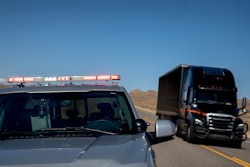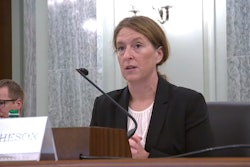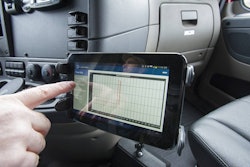The Inflation Reduction Act (IRA), the Bipartisan Infrastructure Law (BIL), the Volkswagen emissions settlement and others are examples of big money being made available to facilitate transition to zero- and near-zero emission vehicles and energy sources. The “b” in big money reflects billions of dollars.
With big money comes not only big opportunities, but also big challenges. Emissions reductions – both greenhouse gases and particulates – are critical to the future of trucking. There is an urgency to this as seen in the commitments from transport companies, their customers, local, state and regional governments and others to meet aggressive sustainability goals.
One of the things the government is very good at is rapidly applying large amounts of funding to help improve situations. Disaster recovery by the Federal Emergency Management Administration (FEMA) is an excellent example of where the power of government funding rapidly applied has helped improve life. The 1956 National System of Interstate and Defense Highways Act led to the building of the majority of the interstate highway system and state feeder networks in a decade, promoting major expansion of commercial and public travel. The federal and state governments in the 1930s funded significant hydroelectric power generation that facilitated electrifying America while also providing much needed Depression Era jobs. The 1972 bipartisan Clean Water Act rapidly applied funding to address polluted waterways with significant tangible improvement.
Big, rapid spending can also spawn fraud and waste. As Glenn Frey so aptly sang in Smuggler’s Blues, “It's the lure of easy money. It's got a very strong appeal.”
Governments have a troubled history with big money projects. There is a rush to spend to show progress, to respect the wishes of the voting public and to aid commercial entities. Careful auditing and accountability tend to come later, sometimes including public outrage. Rapidly spending money to solve problems inherently typifies a “beg for forgiveness later” approach that focusses on getting the money flowing quickly. It also epitomizes an 80/20 rule, where the expectation is that the majority of outlays will be responsibly executed, and the others will eventually face accountability.
A recent example where big money was quick to spend and accountability was slow include investigating fraud in the COVID Paycheck Protection Program (PPP) loans in 2020-2021. While many were helped by PPP funding, some took advantage of the program. The massive funding related to conflicts in Kuwait, Iraq and Afghanistan also brought with it waste and fraud. The rapid retooling of America to become the arsenal of democracy heading into World War II required spending oversight as articulated by the Senate Special Committee to Investigate the National Defense Program (commonly known as the Truman committee).
An example of emergency plans and execution being superseded by world events is the Mallow Bay Ghost Fleet in the Potomac about 40 miles from Washington D.C. Congress created and President Woodrow Wilson signed the Shipping Act of 1916. This Act created the U.S. Shipping Board, which in April 1917 created the Emergency Fleet Corporation (EFC), shortly after the U.S. formally entered the war.










